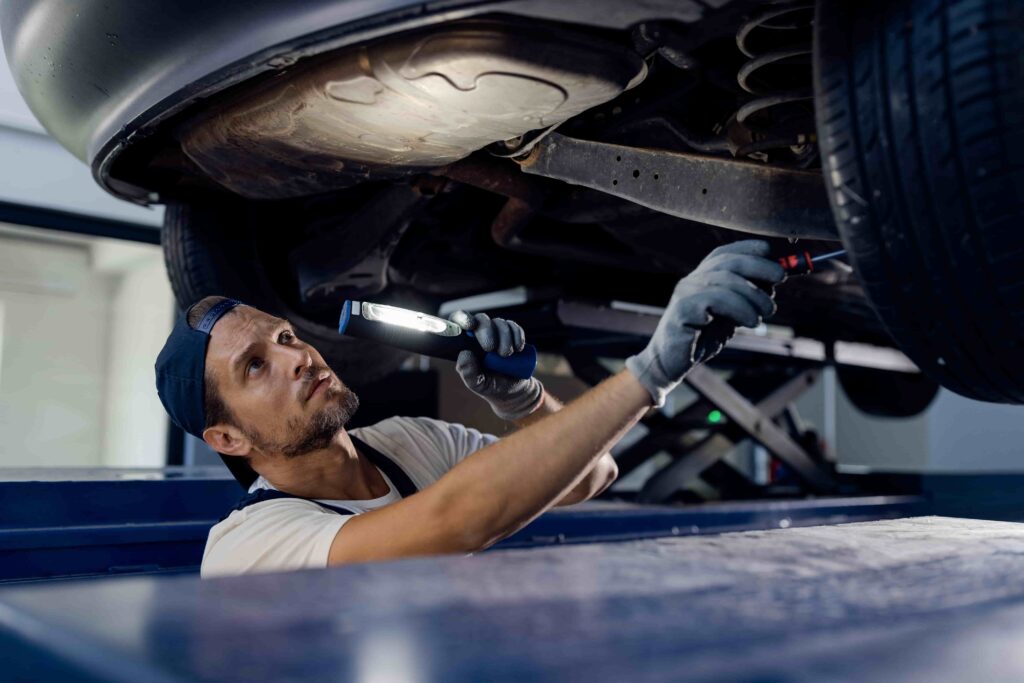The allure of classic cars is undeniable. These timeless machines capture the imagination of car enthusiasts, collectors, and investors alike. With their rich histories and iconic designs, classic cars represent more than just vehicles; they symbolize an era gone by. In this guide, we’ll explore the fascinating world of classic car investments—a venture that blends passion with profit. This is your roadmap to understanding the potential of investing in classic automobiles, whether you’re a seasoned car enthusiast, a first-time investor, or a budding collector.
The Appeal of Classic Cars
Classic cars have an intrinsic appeal that transcends their mechanical value. At the heart of their allure is nostalgia, evoking memories of a bygone era filled with unique cultural significance. These vintage vehicles often feature in films, music, and historical narratives, making them emblematic of different times. The nostalgia factor alone can drive demand, as investors and collectors seek to own a piece of history.
Rarity plays a pivotal role in the desirability of classic cars. Unlike mass-produced vehicles of today, many classic models were limited in production. Over time, the number of surviving units dwindles, further increasing their rarity and desirability among collectors. This scarcity often leads to higher demand, driving up prices in the market.
Financial gain is another compelling reason to consider classic car investment. While not all classic cars appreciate over time, certain models can significantly increase in value, offering lucrative returns. This potential for financial gain attracts not only car lovers but also investors looking to diversify their portfolios.
Getting Started: What to Consider
Before embarking on the classic car investment journey, it’s crucial to set a realistic budget. Determine how much you are willing and able to invest, including the purchase price and ongoing maintenance costs. Establishing a budget helps avoid financial strain and ensures you remain within your means while pursuing this passion.
Research is key to making informed decisions in the classic car market. Familiarize yourself with different makes and models, their historical significance, and current market trends. Knowledge about market dynamics will enable you to identify promising investment opportunities and avoid potential pitfalls.
Understanding the risks and benefits associated with classic car investment is essential. While there is potential for financial gain, there are also risks, such as market fluctuations and costly maintenance. Weighing these factors will help you make calculated decisions and manage expectations as an investor.
Identifying the Right Classic Car
Selecting the right classic car involves careful consideration of various factors. Firstly, assess the age and condition of the vehicle. Older models with well-preserved conditions tend to have higher investment potential. Additionally, the make and model can significantly impact value, with renowned brands often commanding higher prices.
Certain classic cars have consistently proven to be wise investments. Popular models like the Ford Mustang, Porsche 911, and Chevrolet Corvette have shown stable appreciation over the years. These vehicles often have a dedicated fan base, which can contribute to sustained demand and value retention.
Avoiding common pitfalls is crucial when investing in classic cars. Be wary of overly restored vehicles, as excessive modifications can compromise originality and diminish value. Furthermore, thorough inspections and due diligence on the car’s history can prevent costly surprises down the road.
Sourcing and Authenticating
Finding authentic classic cars requires diligence and a keen eye. Auctions, specialty dealerships, and online platforms are common sources. Each has its advantages and drawbacks, so evaluate options based on your preferences and expertise. Auctions can offer competitive prices, while dealerships often provide more guarantees.
Authenticity and documentation are vital in the classic car world. Ensure the vehicle has a verifiable history, known as provenance, and confirm its authenticity through proper documentation. This includes original sales receipts, service records, and any restoration details. An authenticated car not only holds more value but also reassures future buyers.
Working with trusted sellers and experts is a prudent step in the classic car investment process. Engaging knowledgeable professionals can help verify authenticity and value. They can also guide you through the buying process, ensuring you make informed decisions and avoid potential scams.
Maintenance and Preservation
Proper maintenance is crucial for preserving the value of classic cars. Regular servicing ensures that the vehicle remains in optimal condition, preventing costly repairs in the future. Key maintenance practices include oil changes, tire rotations, and inspections of mechanical components.
Deciding between DIY maintenance and professional services depends on your expertise and the car’s complexity. While some enthusiasts enjoy the hands-on approach, others may prefer entrusting their valuable vehicles to professionals. Weigh the pros and cons to determine the best fit for your situation and skill level.
Originality plays a significant role in the value of classic cars. Maintaining original parts and specifications enhances authenticity and desirability. Avoid unnecessary modifications that may compromise originality, as these can negatively impact the vehicle’s market value.
The Growing Market and Future Trends
The classic car market is experiencing notable growth, fueled by increased interest from collectors and investors alike. Rising demand has led to escalating prices, making it an opportune time to explore this investment avenue. However, staying informed about market dynamics is crucial for capitalizing on potential opportunities.
Emerging trends and technologies are shaping the future of classic car investments. Electric conversions, for example, offer a sustainable and modern twist on vintage vehicles, attracting a new generation of enthusiasts. Understanding these trends can help investors identify forward-thinking opportunities.
Predictions for future demand and opportunities in the classic car market are optimistic. As more individuals recognize the cultural and financial value of classic cars, demand is expected to grow. Investing now could position you advantageously in this evolving landscape, potentially leading to significant returns.
Conclusion
Investing in classic cars offers a unique blend of passion and financial opportunity. By understanding the appeal of these vintage treasures, setting a realistic budget, conducting thorough research, and making informed decisions, you can become a successful classic car investor. The current market dynamics present a promising landscape for both newcomers and seasoned enthusiasts. Whether you’re motivated by nostalgia, financial gain, or a combination of both, classic car investment is a rewarding venture that can connect you with a vibrant community of like-minded enthusiasts. To further your knowledge and engage with fellow investors, consider joining classic car clubs and attending industry events. The road to successful classic car investment awaits—embrace the adventure and drive your investment forward.






